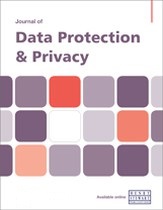Recognising generative and autonomous AI as a ‘juridical person’
Abstract
In the current era, there is a significant global effort to establish legal and regulatory frameworks for the responsible use of artificial intelligence (AI). The discussions surrounding autonomous AI highlight challenges related to its technological transparency and, often, opacity. Despite the widespread application of AI in various fields, debates persist on decision-making processes, the necessity for safe and fair outcomes and the need for regulatory platforms ensuring compliance and governance in AI implementation. Issues such as the ‘authorship’ and ‘inventorship’ of autonomously generated creations, particularly in cases like the ‘device for autonomous bootstrapping of unified sentience’, have sparked intense debates and legal proceedings in multiple locations, including the UK, USA, Australia, Germany, New Zealand, Taiwan and the EU. The Supreme Court of India judgment in 2019 presents a detailed analysis for the recognition of idols as juristic personality. The judgment provides sufficient basis for the creative recognition of ‘generative and autonomous AI’ as a ‘juridical person’. Such a recognition would entitle the AI system to a patent both as an inventor and an applicant satisfying all the essential requirements of the Indian Patents Act. Alternatively, an appropriate `sui generis` system will have to be developed in various jurisdictions based on some commonly accepted principles.
The full article is available to subscribers to the journal.
Author's Biography
Prabuddha Ganguli is CEO of VISION-IPR which offers services in management of intellectual property rights (IPR) and knowledge. He completed his PhD at Tata Institute of Fundamental Research in chemical physics, was awarded the Alexander von Humboldt Fellowship to conduct post-doctoral research in Germany, then was a research fellow at the University of Windsor, Canada and was briefly a visiting scientist at the Bhabha Atomic Research Centre. For the next two decades he held diverse managerial roles in industry. He gives governments expert advice on innovation and IPR policy. He has been a consultant to World Intellectual Property Organization for over two decades on IPR policy development and capacity building programmes. He has advised Indian and multinational corporate houses on creating and executing strategies to maximise IPR assets. He is a member of the Board of IPLPA in India and of the International Editorial Board of Elsevier journal `World Patent Information`. He holds a number of posts at various universities in India. He was Honorary Consultant for innovation and IPR matters to the Office of the Principal Scientific Adviser, Government of India from 2005 to 2017. In 2011, he received the Chemtech Pharma-Bio World Award for outstanding contribution in the field of Intellectual Property, and LEGAL ERA honoured him with the Lifetime Achievement Award in 2014 and, in 2023, as IP Strategist of the Year.
